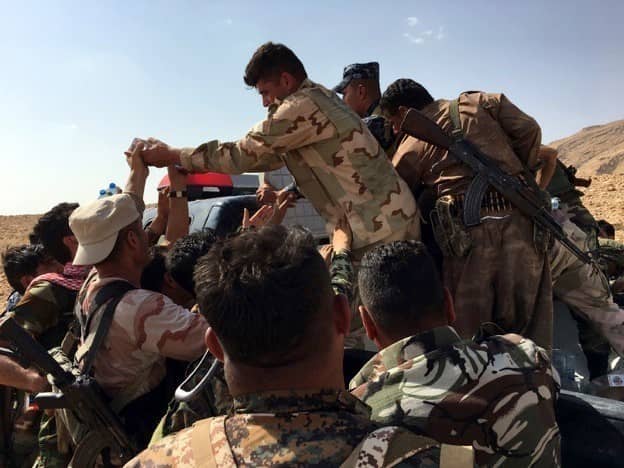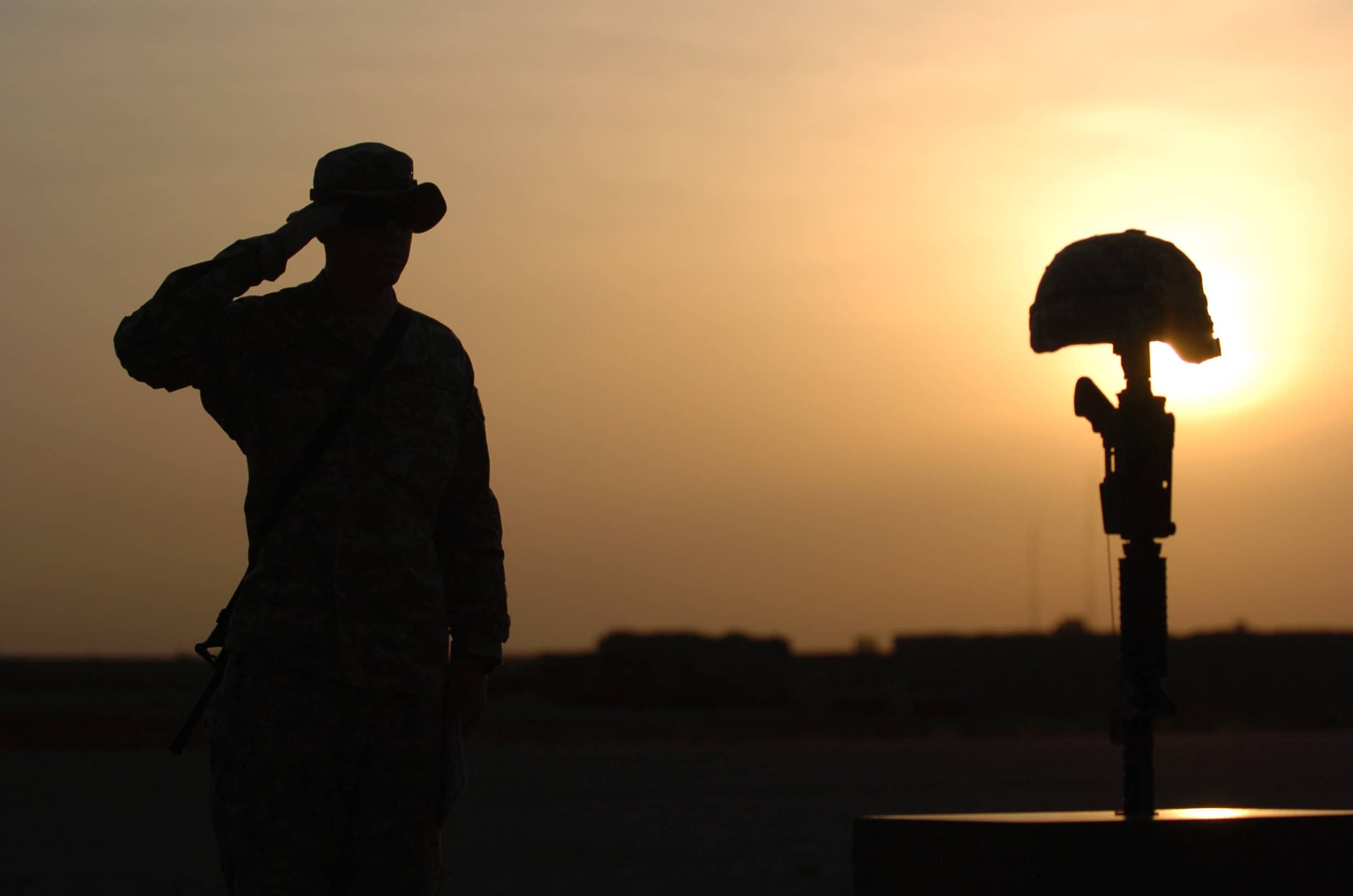Iraqi Federal Police distribute supplies to Peshmerga forces during a joint clearance operation in Makhmour, Iraq, July 17, 2018. With Coalition Forces support, Iraqi Security Forces successfully cleared an Islamic-State safe haven. The Coalition is committed to working by, with and through our partner forces to ensure Iraq is safe and secure. (Photo courtesy of U.S. Army)
As the United States and Iraq embark on a new phase of their decade-long security relationship, it is crucial to analyze the evolving dynamics of this partnership, particularly in the context of countering the Islamic State of Iraq and Syria (ISIS). Recent statements from Deputy Pentagon Press Secretary Sabrina Singh highlight the ongoing commitment of both nations to a productive security alliance, with the focus on adapting to the changing nature of the ISIS threat.
The U.S.-Iraq security relationship has its roots in the post-2003 Iraq War era, evolving significantly over the years. The rise of ISIS in 2014 marked a pivotal moment, prompting intensified collaboration between the two nations. This partnership has been instrumental in the territorial defeat of ISIS, demonstrating the effectiveness of joint efforts in addressing extremist threats.
The upcoming discussions under the U.S.-Iraq Higher Military Commission (HMC) are a testament to both nations' dedication to reviewing and strengthening their security ties. The HMC serves as a critical platform for evaluating the current state of the ISIS threat, assessing operational requirements, and gauging the capabilities of the Iraqi security forces. These discussions will shape the future role of U.S. forces in Iraq and in the broader defeat-ISIS mission.
Key Factors Influencing the U.S. Role in Iraq
Current Nature of the ISIS Threat: Understanding the evolving nature of ISIS is crucial. While the group has lost significant territory, it still poses a threat through insurgency tactics and ideological influence. The HMC will investigate how this threat has transformed over the past decade.
Operational and Environmental Requirements: This involves assessing the current security environment in Iraq and the region, including geopolitical shifts and internal dynamics within Iraq.
Capability Levels of Iraqi Security Forces: A critical aspect is evaluating the progress and needs of the Iraqi security forces (ISF) and Kurdish security forces (KSF). Their ability to independently counter ISIS is vital for long-term stability.
The CJTF-OIR has been instrumental in providing support to Iraqi and Kurdish forces. Its mission encompasses advising, assisting, and enabling efforts to defeat ISIS. The evolution of this mission, as part of the U.S.-Iraq partnership, will be a focal point of the HMC discussions.
Contrary to notions of U.S. withdrawal, the focus is on transitioning to a bilateral security partnership that builds on the successes against ISIS. This involves reshaping the U.S. military presence in Iraq in a manner that supports Iraqi sovereignty and long-term stability. The objective is not just the enduring defeat of ISIS but also ensuring that Iraq is equipped to defend its national security and sovereignty.
The U.S.-Iraq security partnership has broader implications for regional stability and the global fight against terrorism. A strong and evolving U.S.-Iraq alliance can serve as a bulwark against the resurgence of extremist groups like ISIS and as a stabilizing factor in a region often marred by conflict and instability.
As the U.S. and Iraq embark on these crucial discussions under the HMC, it is evident that the partnership is poised for a significant evolution. The focus remains on adapting to the changing nature of threats while ensuring that Iraq emerges as a strong, stable, and sovereign nation capable of countering terrorism within its borders. This evolving partnership underscores a mutual commitment to security, stability, and a future free from the destructive influence of groups like ISIS.





Leave a comment
This site is protected by hCaptcha and the hCaptcha Privacy Policy and Terms of Service apply.